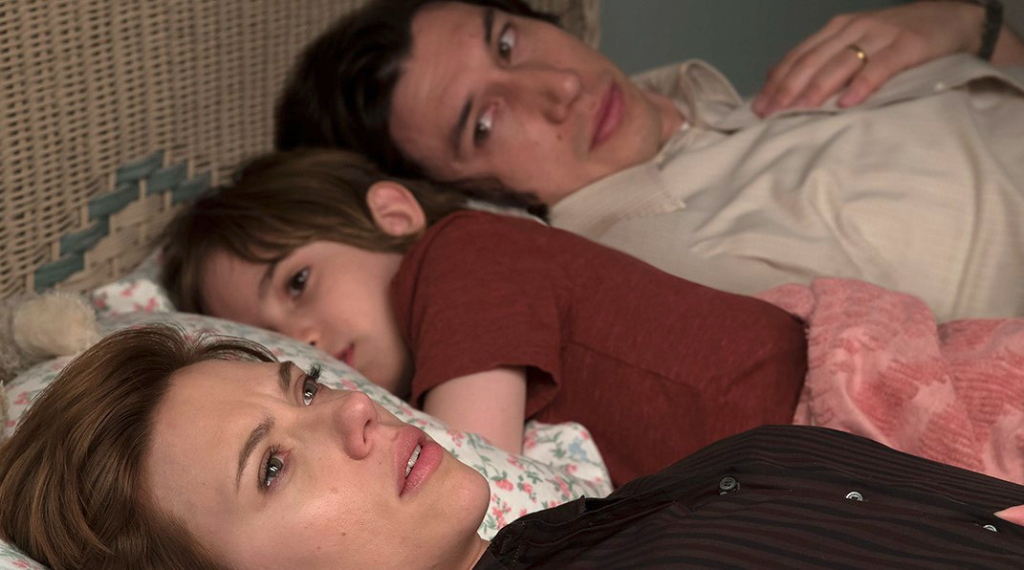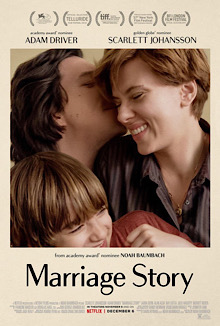Marriage Story

It’s very easy to praise a film like Marriage Story for its performances and sharp screenplay. Adam Driver and Scarlett Johansson are a married couple who have decided to divorce, but what initially appears to be an amicable separation turns into a fierce attorney-driven war.
This movie is more an exercise in style than a piece of cinema. It’s what you’d expect to be shown at NYU arts school as an example of indie film writing. It wants to tick all the boxes, it begs to be perceived as smart. But is there actually anything interesting and new? We already knew that Driver and Johansson could act so there was no need to go through the entire catalogue: understated dramatic expressions showing deep emotions, tick; overtly angry tearful faces, tick; natural lovable funny moments between parent and child, tick. The list goes on and on.
The same can be said for the performances of Ray Liotta and Laura Dern; they are both absolutely brilliant but their roles are written to evoke a very specific reaction. Everything is by design. Shouldn’t great dramatic screenplays lead to different responses? Shouldn’t they make the viewer reflect and even doubt their own judgement? Marriage Story is the classic film that wants to please its audience of critics and movie buffs – and it will undoubtedly be lauded by them.
Noah Baumbach is a fine filmmaker, and there’s very little that doesn’t work in this picture. However, as the credits run, I keep wondering: why have I been watching this for over two hours?
Marriage Story adds more quality content to the lineup on Netflix, which has found in Venice the perfect festival to carve the reputation of being a studio that invests also in auteurs, not just bingeable shows.
Filippo L’Astorina, the Editor
Marriage Story is released on Netflix on 15th November 2019.
Watch the trailer for Marriage Story here:


























Facebook
Twitter
Instagram
YouTube
RSS